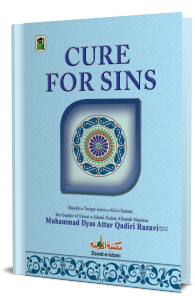
Pleasureless Sins
Mufti Muhammad Qasim ‘Attari
Allah Almighty stated:
اِنَّمَا کَانَ قَوۡلَ الۡمُؤۡمِنِیۡنَ اِذَا دُعُوۡۤا اِلَی اللہِ وَ رَسُوۡلِہٖ لِیَحۡکُمَ بَیۡنَہُمۡ اَنۡ یَّقُوۡلُوۡا سَمِعۡنَا وَ اَطَعۡنَا ؕ وَ اُولٰٓئِکَ ہُمُ الۡمُفۡلِحُوۡنَ (۵۱)
“The saying of the Muslims is only this; when they are called towards Allah and the Messenger, that the Messenger may judge between them, they hence submit, 'We have heard and obeyed the command.' And it is only these ˹people˺ who are successful.”[1]
Commentary: This verse lauds the true believers because they readily accept divine injunctions and submit to the laws of Allah Almighty. Acting upon the command of Allah Almighty is obedience, and not acting upon His command is known as sin or disobedience. The Quran employs a variety of subtly distinct words for disobedience, such as fisq, ʿudwān, ḥarām, and ithm. Hence, it is stated in the Quran:
یٰۤاَیُّہَا الَّذِیۡنَ اٰمَنُوۡۤا اِذَا تَنَاجَیۡتُمۡ فَلَا تَتَنَاجَوۡا بِالۡاِثۡمِ وَ الۡعُدۡوَانِ وَ مَعۡصِیَتِ الرَّسُوۡلِ
“O believers! When you consult each other, so do not consult for sinning, nor exceeding the limits, nor disobeying the Messenger.”[2]
All of these words are approximate synonyms of sin.
The nature of sin: Whether a sin is minor or major, hidden or public, pleasurable or not, it is still an act of disobedience for which we may be accounted. With the decline of society, we find our communities overwhelmed with sin, habitually engaging in unethical and immoral wonts, even if they do not gain pleasure from them. They simply follow “trendsetters,” “celebrities,” and evil people. For example, males wearing earrings, gold rings, bracelets, bangles, necklaces, or wearing shorts that do not conceal the navel and knees, getting tattoos, and cutting the beard in a range of styles. These are strange sins that do not contain any pleasure; those who commit of these sins consider themselves to be something unique and special but gain nothing in reality.
Causes of sins: There are two reasons behind committing these sins:
One is ignorance; a person is not aware that his actions are sinful. The second reason is giving into the carnal self and Satanic invitations, and not having any sense or desire to live as per Allah’s commands.
Both reasons harm the Muslim’s life in the Hereafter and sour the sweetness of his faith.
Curing ignorance-driven sins
The antidote for ignorance is knowledge. Learning what Islam teaches about sins and the warnings it gives are the first step. Examples of such warnings include:
The first sin: A clear and widespread example of pleasureless sins is the wearing of rings made from various metals, and those that do not conform to standards laid down by the sharia. The correct ruling is that a man can only wear a silver ring that weighs less than 4.365 grams and has a stone. Other than this, it is not permissible for him to wear a ring of another metal, a band, a bracelet, or other jewellery.
A man once came to the beloved Prophet صَلَّى الـلّٰـهُ عَلَيْهِ وَاٰلِهٖ وَسَلَّم wearing a brass ring. The Messenger of Allah صَلَّى الـلّٰـهُ عَلَيْهِ وَاٰلِهٖ وَسَلَّم said, “Why do I find the stench of idols coming from you?” Thus, he removed the ring and came back whilst wearing an iron ring. The beloved Prophet صَلَّى الـلّٰـهُ عَلَيْهِ وَاٰلِهٖ وَسَلَّم then said, “Why do I see the jewellery of the dwellers of Hell upon you?” He removed that too and asked, “O Messenger of Allah صَلَّى الـلّٰـهُ عَلَيْهِ وَاٰلِهٖ وَسَلَّم ! What shall I make a ring from?” The noble Prophet صَلَّى الـلّٰـهُ عَلَيْهِ وَاٰلِهٖ وَسَلَّم replied, “Make a ring from silver, and do not allow it to reach a mithqal (i.e., 4.365 grams).”[3]
The second sin: Nowadays, many young people wear bangles made from iron and bracelets of various other metals. This is also impermissible and a sin. The noble Prophet صَلَّى الـلّٰـهُ عَلَيْهِ وَاٰلِهٖ وَسَلَّم severely warned men about this. He once saw a man with a brass bangle in his hand, and said, “Woe to you. What have you done?” The man replied, “O Messenger of Allah صَلَّى الـلّٰـهُ عَلَيْهِ وَاٰلِهٖ وَسَلَّم ! I am wearing this due to an illness.” The beloved Prophet صَلَّى الـلّٰـهُ عَلَيْهِ وَاٰلِهٖ وَسَلَّم said, “This will only cause your illness to worsen. Remove this bangle, because if you die in this state, you will never be from among those who reach success.”[4]
The third sin: Boys wear earrings, although this is impermissible and haram. Wearing earrings is from the specifics of women, and a man is commanded to not imitate women. A man who imitates women is cursed. Hence, the Messenger of Allah صَلَّى الـلّٰـهُ عَلَيْهِ وَاٰلِهٖ وَسَلَّم sent curses upon men who imitate women, and women who imitate men.[5]
The fourth sin: Men wearing gold and silver necklaces. This is also haram for men, because wearing a gold or silver necklace is only permissible for women. A man is only allowed to wear one silver ring if it fulfils certain conditions. Besides this, any other jewellery of silver or gold is not permitted for a man. The noble Prophet صَلَّى الـلّٰـهُ عَلَيْهِ وَاٰلِهٖ وَسَلَّم held gold in his right hand and silk in his left hand, then raised them both and announced, “Both of these things are unlawful for the men of my nation, but permitted for its women.”[6]
The fifth sin: Wearing shorts. Males today roam alleyways and streets in shorts that expose their knees and thighs. These are part of the sitr (what must be concealed) and must be covered up. The beloved Prophet صَلَّى الـلّٰـهُ عَلَيْهِ وَاٰلِهٖ وَسَلَّم once passed by a man whose thigh was visible and explained, “Conceal your thigh, for this is also from the sitr (what must be concealed) of a man.”[7] Similarly, the noble Prophet صَلَّى الـلّٰـهُ عَلَيْهِ وَاٰلِهٖ وَسَلَّم specifically said regarding knees, “The knee is a part of the reserved area (ʿawra).”[8]
The sixth sin: Having tattoos of varying designs made on the body. This is to alter the creation of Allah Almighty, which is a haram and Satanic act. It is stated in the Quran:
وَ لَاٰمُرَنَّہُمۡ فَلَیُغَیِّرُنَّ خَلۡقَ اللہِ ؕ
“˹Satan said˺ and I will definitely order them that they will change the creation of Allah.”[9]
Also, the noble Prophet صَلَّى الـلّٰـهُ عَلَيْهِ وَاٰلِهٖ وَسَلَّم said, “May Allah’s curse be upon those who practise tattooing, those who have it done; those who remove hairs, those who create gaps in between their teeth for beatification, and on those who alter the creation of Allah.”[10]
The seventh sin: Shaving the beard or trimming it less than a fist in various styles. Most young people neglect this duty (wājib). This is despite the fact that keeping a beard is a mass-transmitted sunna, a hallmark of Islam, and a tradition of the prophets. In several hadith, the noble Prophet صَلَّى الـلّٰـهُ عَلَيْهِ وَاٰلِهٖ وَسَلَّم commanded men to grow the beard. For example, he said, “Oppose the polytheists by growing your beards and clipping your moustaches.” When Sayyidunā Ibn ʿUmar رَضِیَ الـلّٰـهُ عَنْهُمَا performed Hajj or Umrah, he clenched his beard and cut the hair that exceeded his fist.[11]
The second reason for sinning, and its solution
The second reason is obeying the carnal self and Satan, and not having any desire towards acting upon the command of Allah Almighty. This state incites a person towards all kinds of sin. The way of curing this is for us to be aware of the decrees of Allah Almighty and what He commands us to do. Allah Almighty states:
وَ ذَرُوۡا ظَاہِرَ الۡاِثۡمِ وَ بَاطِنَہٗ ؕ
“And give up open and hidden sins.”[12]
We should also remain conscious of the fact that every good and evil deed, from the smallest to the largest, will be presented before a person on the Day of Judgement. Hence, Sayyidunā Luqmān رَضِىَ الـلّٰـهُ عَـنْهُ said to his son:
یٰبُنَیَّ اِنَّہَاۤ اِنۡ تَکُ مِثۡقَالَ حَبَّۃٍ مِّنۡ خَرۡدَلٍ فَتَکُنۡ فِیۡ صَخۡرَۃٍ اَوۡ فِی السَّمٰوٰتِ اَوۡ فِی الۡاَرۡضِ یَاۡتِ بِہَا اللہُ ؕ اِنَّ اللہَ لَطِیۡفٌ خَبِیۡرٌ (۱۶)
“O my son! If the evil deed is equal to the weight of a mustard seed, it is then in a rock, or in the heavens, or wherever in the earth, Allah will bring it forth; indeed, Allah is the Knower of every subtlety, the All-Aware.”[13]
Think about that moment when his Book of Deeds will be opened, and every minor and major deed will be recorded within it, and the shame that he will feel upon seeing his sins. It is stated:
وَ وُضِعَ الۡکِتٰبُ فَتَرَی الۡمُجۡرِمِیۡنَ مُشۡفِقِیۡنَ مِمَّا فِیۡہِ وَ یَقُوۡلُوۡنَ یٰوَیۡلَتَنَا مَالِ ہٰذَا الۡکِتٰبِ لَا یُغَادِرُ صَغِیۡرَۃً وَّ لَا کَبِیۡرَۃً اِلَّاۤ اَحۡصٰہَا ۚ وَ وَجَدُوۡا مَا عَمِلُوۡا حَاضِرًا ؕ وَ لَا یَظۡلِمُ رَبُّکَ اَحَدًا (۴۹)
“And the book of deeds shall be placed, and you will observe the culprits fearing what is written therein and will say, 'Woe to us! What has happened to this book? It has not left out any sin; minor or major, which it has not encompassed.' And they found all that they did, present in front of them; and your Lord does not do injustice to anyone.”[14]
I urge the believers to recall their love for Islam and to return to its teachings. Work for what you want in the eternal life of the Hereafter, and give up sins, especially those which are frivolous and a complete waste of energy and resources.
May Allah Almighty grant us the desire and ability to avoid sins. اٰمین
[1] [Kanz-ul-Iman (translation of Quran)] (Part 8, Surah Al-Noor, verse 51)
[2] [Kanz-ul-Iman (translation of Quran)] (Part 28, Surah Al-Mujaadalah, verse 9)
[3] Sunan Abī Dāwūd, vol. 4, p. 122, Hadith 4223
[4] Musnad Imam Ahmad, vol. 33, p. 204, Hadith 20,000
[5] Ṣaḥīḥ al-Bukhāri, vol. 4, p. 73, Hadith 5885
[6] Sunan Ibn Mājah, vol. 4, p. 157, Hadith 3595
[7] Musnad Imam Ahmad, vol. 4, p. 295, Hadith 2493
[8] Al-Daraqutni, vol. 1, p. 431, Hadith 889
[9] [Kanz-ul-Iman (translation of Quran)] (Part 8, Surah Al-Nisa, verse 119)
[10] Ṣaḥīḥ al-Bukhāri, vol. 4, p. 87, Hadith 5948
[11] Ṣaḥīḥ al-Bukhāri, vol. 4, p. 75, Hadith 5892
[12] [Kanz-ul-Iman (translation of Quran)] (Part 8, Surah Al-An’aam, verse 120)
[13] [Kanz-ul-Iman (translation of Quran)] (Part 21, Surah Luqmaan, verse 16)
[14] [Kanz-ul-Iman (translation of Quran)] (Part 15, Surah Al-Kahf,, verse 49)


















Comments